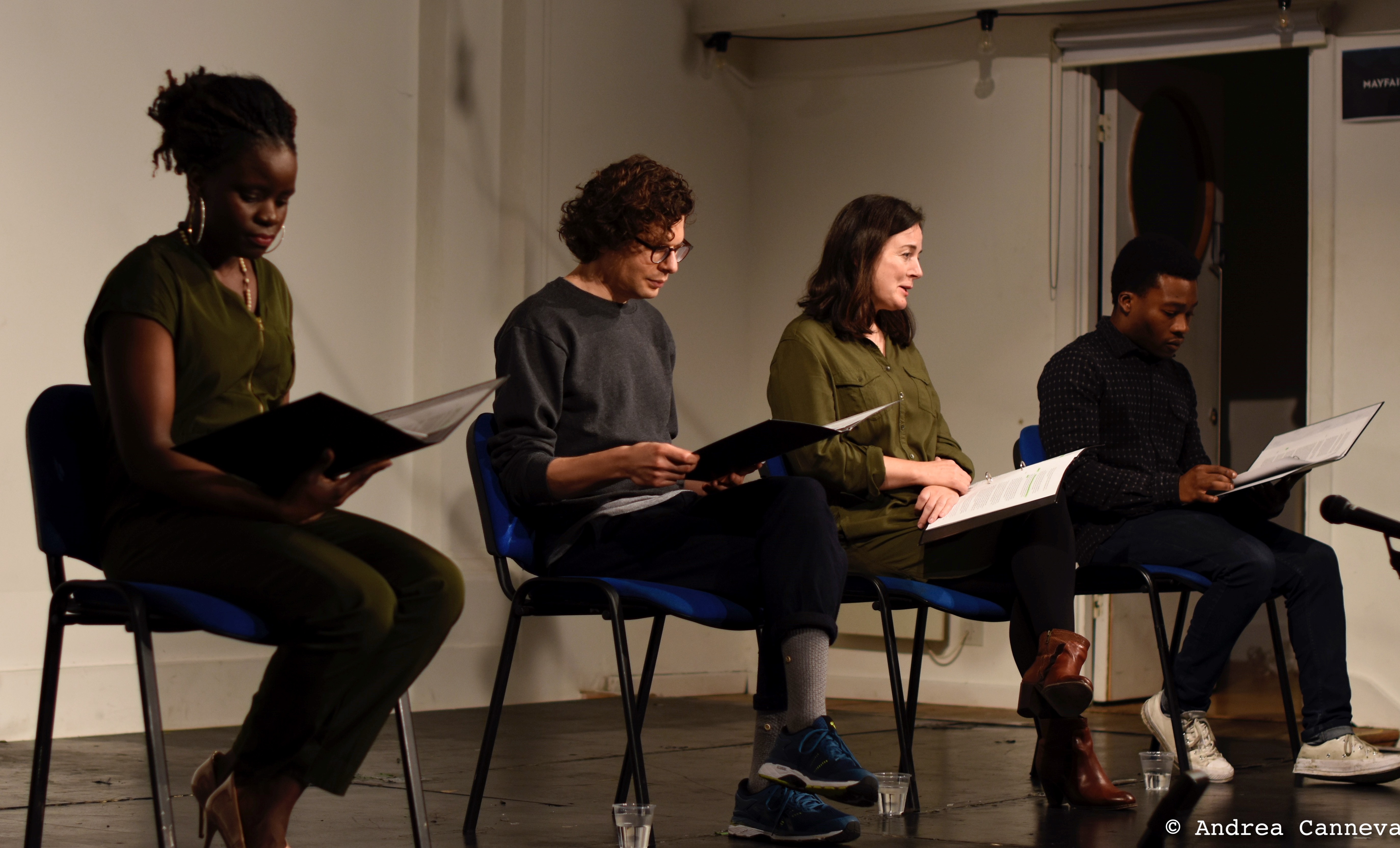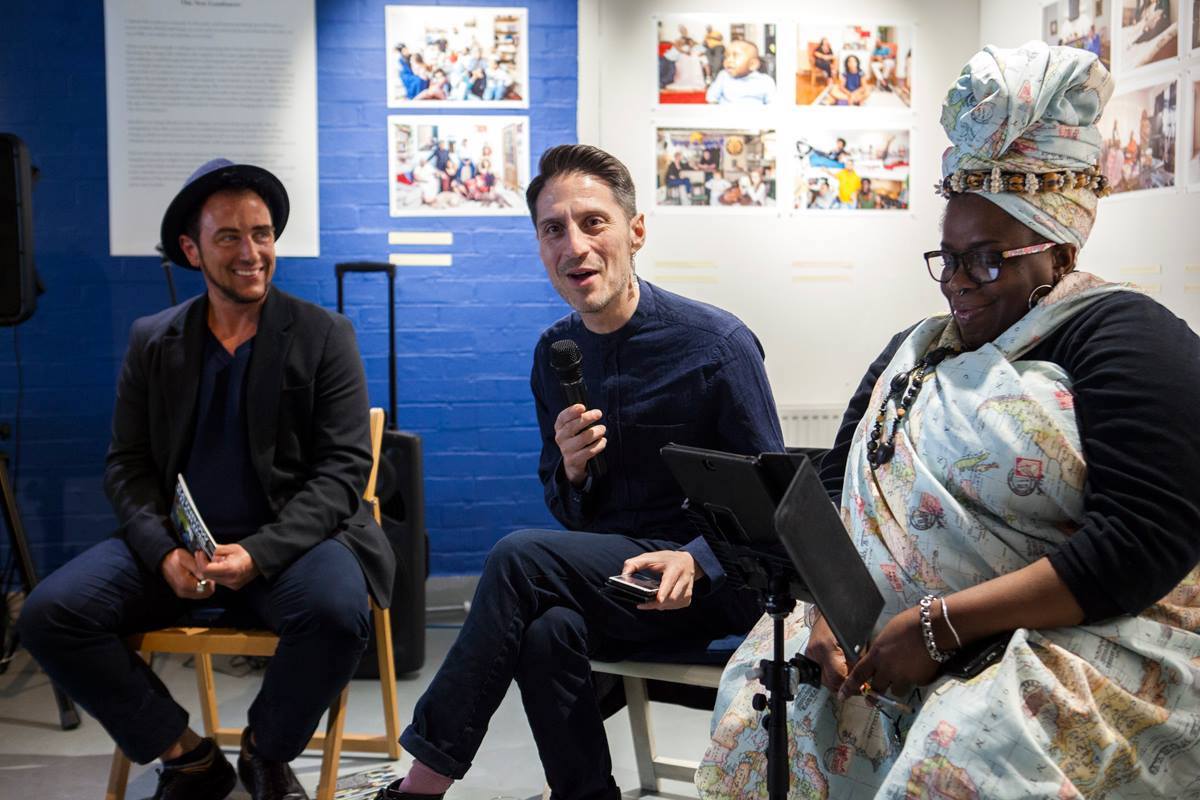Heart-rending first-hand accounts from those who’ve sought asylum in the UK will be revealed as part of a stage event that arrives in Liverpool next month.
The Asylum Monologues is a rehearsed reading of interwoven stories from people with often harrowing experiences of seeking refuge while trying to negotiate the UK’s asylum system.
The anonymous tales are told by actors and performers.
And those actors will take to the stage at Liverpool’s Capstone Theatre on Wednesday 16th March, 6pm, in a show that’s part of the annual Angel Field Festival organised by Liverpool Hope University.

What’s more, Asylum Monologues is free to attend - created by the Ice&Fire theatre company and arts charity through its Actors for Human Rights project, a network of more than 700 actors from across the UK who are dedicated to drawing public attention to human rights concerns.
Sebastian Aguirre is a Director of Actors for Human Rights. His own parents came to the UK as refugees from Chile.
And Sebastian says that the asylum picture in the UK is becoming ever more complicated, particularly with the proposed new ‘Nationality and Borders Bill’ that will, among other things, grant power to the British government to remove someone's citizenship without actually needing to tell them.
That Bill could also build on a controversial set of policies introduced in 2012 by then-Home Secretary Theresa May which were designed to, as she said, ‘create, here in Britain, a really hostile environment for illegal immigrants’.
Sebastian says: “Our work has not become any less urgent in the last few years, let’s put it that way. The problem of how we treat refugees is worse, and it’s a really frightening time right now with the Nationality and Borders Bill going through Parliament.
“There will always be a tide of anti-migrant and anti-refugee rhetoric because whenever there’s any political discord or difficulty for Governments, this is the first group of people that will be scapegoated, simply because they don’t have agency. They can’t vote and therefore they’re the easiest target.
“And in terms of the stories that we’re hearing, everyone who works in the system is scared about what’s going to happen next. But we’ll keep fighting to make it work. Positive changes never come from government policy, they come from people.”

(Sebastian Aguirre, centre)
The stories that feature in Asylum Monologues are designed not to be a ‘performance’, but instead a verbatim recounting of real testimony from asylum seekers.
Since Asylum Monologues was first created in 2006, the accounts have reflected the horrors of torture, sexuality-based violence and murder, as well as the perils of simply trying to make it to the UK.
Sebastian adds: “All of the stories are extraordinary. It has also been interesting to see what happened during the pandemic.
“When you’re in the asylum process, you’re not allowed to work, you’re living on £40 per week, you live where the Home Office sends you, and you’re at risk of detention all of the time. There was one guy we spoke with who’d been in this system for 13 years.
“He was finally granted refugee status just as the pandemic hit. A lot of people don’t realise that when you’re granted refugee status, it’s just to be recognised as a refugee.
“You then have 28 days to find a job, a home, and to look after yourself. Yet when you’ve been in the system for that long, it’s pretty impossible. You don’t feel fit for work. No-one’s going to employ you anyway because you haven’t been working for 13 years.
“And then you’re also hit with a global pandemic. It can be very, very challenging.
“When the Home Office is assessing a person’s status as a refugee, but they’re also working against a refusal rate target, that’s a logically corrupt system. It’s not a system that works.”
Despite the very difficult and complex stories being told, Sebastian says the accounts are also uplifting - and sometimes have real humour and warmth amidst the sadness.
He reveals:”We present the whole human being - it’s not just a case study of why the asylum process is terrible. It’s also saying, ‘What are this person’s sensibilities? What is their sense of humour? What are their passions? What was their childhood like?’
“Because it’s verbatim, we catch people’s words as they say them. We share people’s stories as they would share them rather than interpreting them or trying to edit it down.
“There’s one case study where a lady on a migrant boat that sank talks about coming up from the water - someone who saw her doing so said she looked just like the pop star Shakira, as she flicked her hair up over her head!
“If you had a really sombre writer talking about refugees, there’s no way they’d think it was okay to make that sort of reference. But it’s important that we use our platform to present people as fully-rounded human beings, rather than victims.”
You can watch a fascinating video about Asylum Monologues.
And below you can read some snippets of testimony from some of the people who’ve shared their stories.

‘Dembe’
A successful female athlete from Uganda, Dembe sought asylum in the UK when she feared her sexuality was going to be outed. She describes how a neighbour came into her home while she was with another woman:
“My neighbour saw that my door was not locked and she just walked in and saw us. And her reaction, like, ‘Oh. My. God’. If people heard her screaming and got to us, in this situation, they would first beat you or kill you, and then start asking questions.
Because I had just competed in the Commonwealth Games, my visa for the UK was still valid. Immediately, I booked a ticket no matter the costs.”
‘Willy’
‘Willy’ enjoyed a comfortable, middle class life in the Democratic Republic of the Congo as a teacher. His father was also a doctor. But then the soldiers came to his village:
“They would kill people. They would rape people. Cut the breasts off women and you’re just seeing it. Some days I relive those memories and I start to… feel panic. I got involved with campaigning to remove the president. I enjoyed it. But the authorities discovered what we were doing and I was seriously beaten by four soldiers.”
‘Sayid’
Sayid’s life in Syria become intolerable when he was arrested for joining a protest in Damascus:
“They took me to a small room with no windows. I stayed in that room for 90 days. I don’t know how I coped. When I managed to escape I said, no one can protect me in Syria. I knew I had to leave. In Calais, I tried for 64 nights. I tried to go on to a truck, under a truck. Finally, I found a smuggler who sold me a British passport. And the picture looked like me.”
‘Julie’
Julie still bears the scars of horrific torture having been arrested by the army in her home nation. But the mental wounds from the asylum process have also cut deep:
“The torture that I went through, I would not… I just wish no human would go through something like that. After almost a year, some men told us they were going to help us escape. Five of us broke out, three died, because they shot at us. When we came to the airport the man who was with me said, ‘I’m taking you to somewhere safe’. Actually, it was when I got here that I realised it was Heathrow. And I was like, ‘Where is Heathrow…?’”



